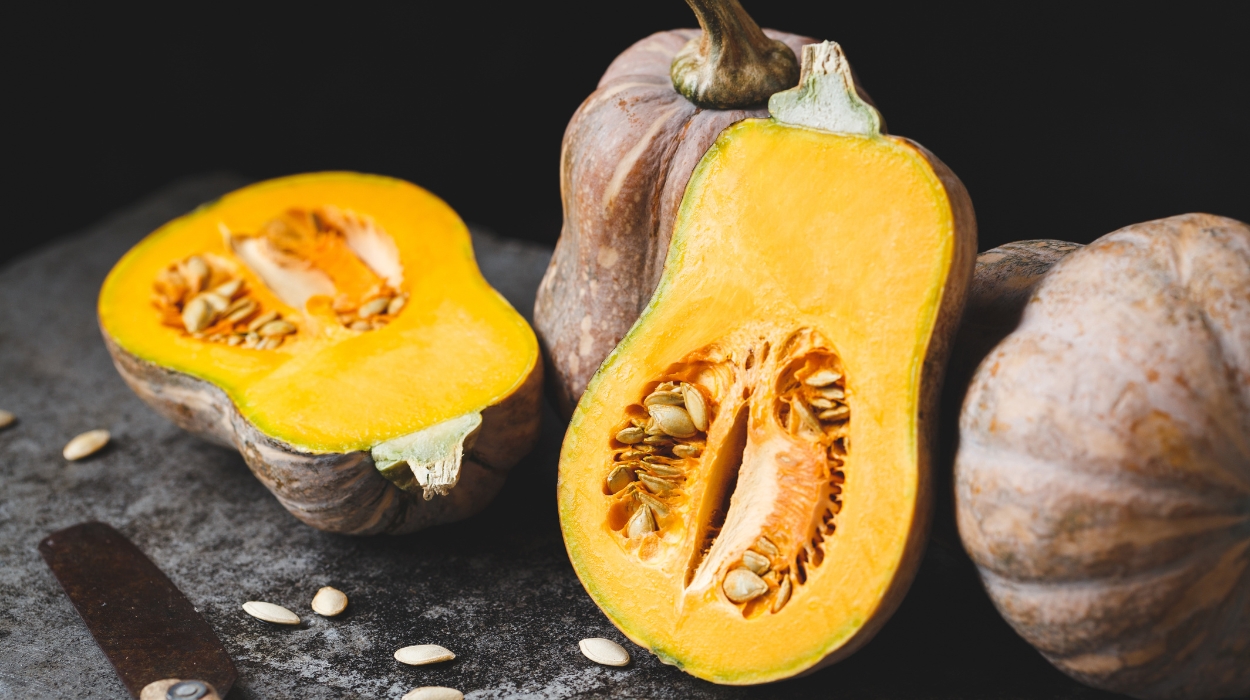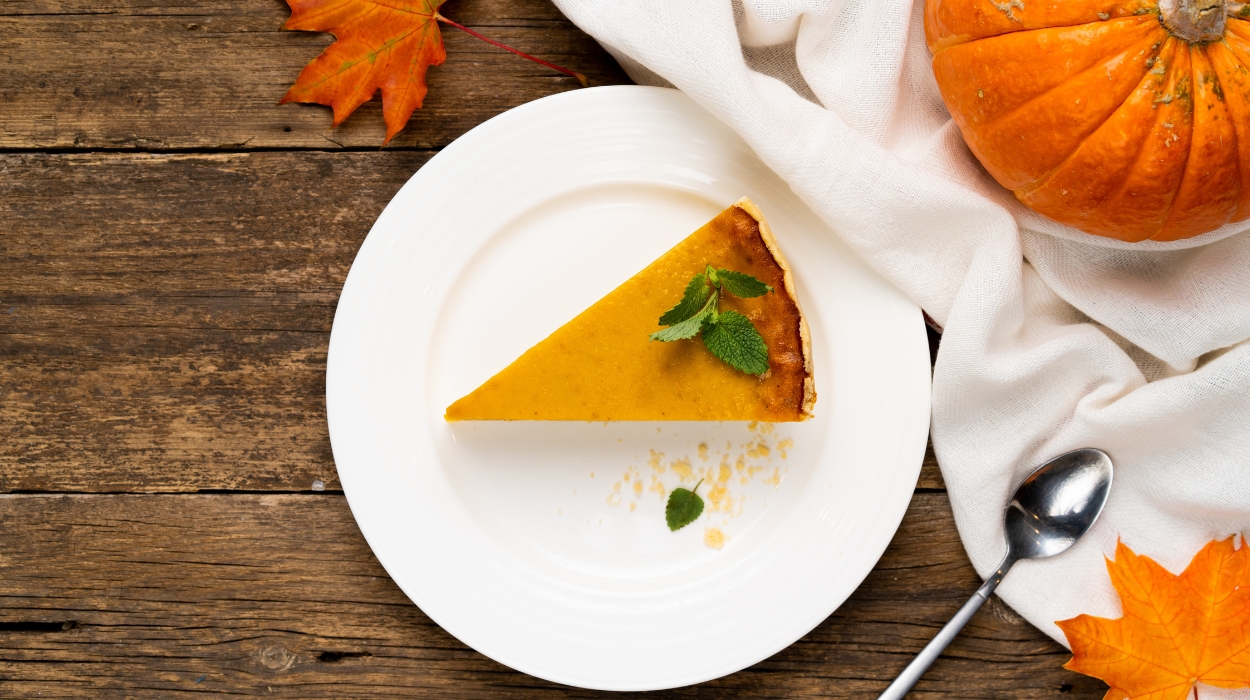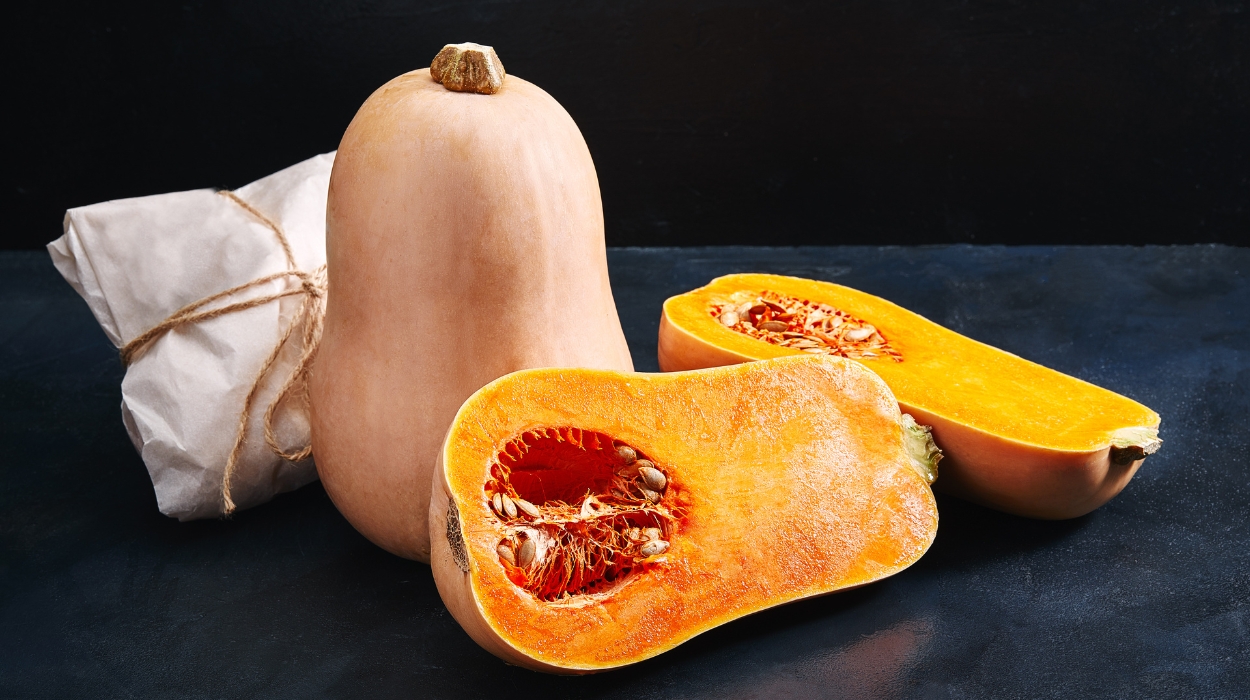People often think that weight loss means going low-carb, which means starchy veggies like butternut squash and pumpkin often get left behind. Luckily, it’s just not true that you need to give up these veggies to shed pounds. In fact, squash might even be one of the best vegetables for weight loss.
Let’s dive into the science so you can stop wondering, “Is squash good for weight loss?” Learn its far-reaching benefits and a multitude of fun and creative ways to add it to your diet as you strive to lose extra fat.
Does Squash Help With Weight Loss?
Yes, squash can help with weight loss because it’s fiber-rich, low-calorie, nutrient-dense, hydrating, and versatile. It can easily fill you up and help you reach a caloric deficit.
Is Squash Good For Weight Loss?
Squash is great for people who want to lose fat. It’s low in calories and high in fiber, making it a filling option that can satisfy your appetite and help you reach a calorie deficit.
Depending on the type of squash, its glycemic index can be relatively low. That means it won’t spike your blood sugar levels too drastically. Including starchy types, like baked butternut,[1] with 40 calories and 11 grams of carbs in every 1/2 cup.
Reasons Why Squash Is Important For Weight Loss

Along with healthy fruits, green powders, and fruit and vegetable supplements, veggies like squash can help you reach a healthy weight. Here’s how:
They Are Fiber-Rich
We often forgo starchy vegetables like squash for fear that the carbs will lead to weight gain. However, eating starchy and fiber-rich veggies like winter squash can actually help you feel more satisfied and full. That means potentially fewer sugar cravings and snacking because of a satisfying meal.
For example, one cup of cooked butternut[1] squash has almost 7 grams of fiber — you’re recommended to have 25 to 35 grams[2] of fiber per day. Increased dietary fiber[3] intake, like the soluble fiber found in fruit and vegetables, can promote weight loss through increased satiety and lower overall calorie intake.
Fiber aids digestion, improves your gut health,[4] and helps you feel fuller longer. The added benefit of a healthy gut can lead to improved mental health[5] and immunity, which can boost your energy levels and make healthier choices easier.
They Are Low In Calories
All types of squash can be part of a healthy diet, helping you feel full without overconsuming calories. Half a cup of sliced cooked zucchini,[6] for example, is about 14 calories with 2 grams of carbs and 1.2 grams of insoluble and soluble fiber. This is in contrast to the sweet potato with 124 calories[7] per one-half cup.
Even the starchier types of squash are still low-calorie. For instance, one cup of cooked butternut[1] squash is only 80 calories and almost 7 grams of fiber, satisfying, and packed with flavor and fiber.
They Are Nutrient Dense
Squash is high in essential vitamins and minerals,[1] like vitamins A, C, E, and B6, magnesium, and potassium. These nutrients help your metabolism and immune system function at their best. Vitamin C, for example, is especially important for your immune system.[8]
The antioxidants found in squash, such as beta-carotene[9] and vitamin C, also help combat inflammation and oxidative stress, thereby reducing the risk of metabolic syndrome, heart disease, and obesity.[10]
They Are Hydrating
Squash has a high water content which helps you feel full,[7] making it helpful for losing weight. Plus, hydration is key for a well-functioning metabolism and overall health.
While squash isn’t a replacement for drinking water, it can help you meet your daily needs while you gradually lose body fat. In fact, one cup of cooked butternut squash contains 180 milligrams of water[1] which translates into .18 ml.
They Are Versatile
There’s an endless list of interesting squash recipes available. It can be baked, roasted, steamed, or turned into noodles, soups, and even desserts. This versatility makes creating healthier recipes easier, transforming traditional favorites into nutritious options that help you shed pounds.
For example, spaghetti squash can replace high-carb pasta. It can also be pureed into a soup to add a creamy texture so that dairy isn’t even needed. Butternut squash is delicious baked.
Squash’s variety also means you can eat healthy without getting bored, which is one of the biggest problems dieters face. Most people eat too restrictively when trying to lose weight, forgoing carbs and desserts. But with squash, you can have your cake and eat it too, literally!
How To Eat

Check out some of the easiest tips to eat more squash:
Breakfast
- Pumpkin Latte Smoothies: A blender and some coconut milk, frozen pumpkin chunks, cinnamon, and vanilla, are all you need to make a rich and filling smoothie. You can even add a scoop of collagen or vanilla protein powder to make it extra filling. Plus, a shot of espresso or black chai tea will elevate its flavor and energy.
- Pumpkin Pancakes: When you get tired of banana pancakes, mashed pumpkin can be the perfect replacement. Make them healthier with almond or oat flour, eggs, nut milk, a dash of maple syrup spices, and some protein powder.
- Spaghetti Squash Nest: Spiralize some zucchini or summer squash and fry it in a pan with olive oil and a little pepper. Portion it into a serving-size circle and fry an egg in the middle to look like a bird’s nest.
Lunch And Dinner
- Pizza Crust: Create a low-carb pizza crust using butternut squash, egg, pepper, and a bit of flour to hold it together.
- Fritters: Combine grated zucchini with an egg, a little flour, and some pepper. Then pan-fry it for a quick, tasty snack or side dish.
- Squash Hummus: Blend cooked butternut squash into your hummus for an extra creamy texture and boost of vitamins.
- Salads: Add roasted or cooked butternut squash to your leafy green or bean salads with a drizzle of olive oil for extra healthy fat, fiber, and nutrients.
- Zoodles: Spiralize zucchini and use it in place of traditional pasta for a low-carb option.
- Soup: Blend butternut squash or pumpkin for a rich and velvety filling soup. Top with ground pepper.
Dessert
- Pumpkin Chai Ice Cream: Instead of banana, use pumpkin puree as a base for a healthier homemade ice cream alternative.
- Chocolate Loaf: Make your breakfast or dessert loaves low-carb by adding zucchini instead of bananas. The addition of cocoa powder will mask the zucchini flavor.
- Pumpkin Pie: You can’t go wrong with a healthy version of pumpkin pie. Use the puree as the base and look online for non-traditional recipes.
Final Words
So, what is squash good for? It adds more nutrients and fiber, which can support weight loss efforts and overall body health. It helps fill you up while providing long-lasting energy, making it easier to satisfy your appetite and reach a calorie deficit.
Squash is also low in calories and extremely versatile for cooking and baking. There’s truly no shortage of creative ways to eat squash. Give it a try and see for yourself the benefits it has to offer.
If you have questions about squash’s potential role in safely losing body fat, consider meeting with a registered dietitian to assess your nutrition needs.
Frequently Asked Questions
While no food targets belly fat specifically, squash’s high-fiber content can contribute to overall weight loss benefits and fat burn, including in your abdominal region.
Yes, cooked butternut squash can be good for weight loss. It’s highly nutritious and rich in soluble fiber, helping you fill up more quickly, and potentially reducing total calorie intake.
All types of squash can be good for shedding unwanted body fat. However, summer squash and zucchini are the lowest in calories, which can help create a calorie deficit.
Eating a balanced diet is key. Any food eaten in extremely large amounts, including healthy foods like veggies, can create potential problems. For example, an excess of the nutrient beta-carotene can cause carotenemia, which turns skin yellow-orange.
 Evidence Based
Evidence Based
